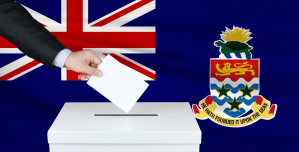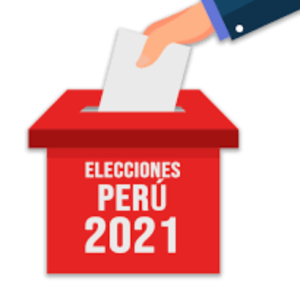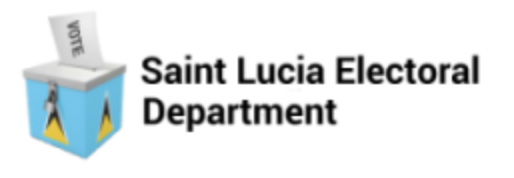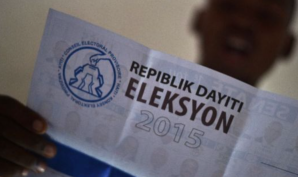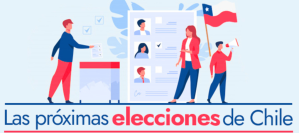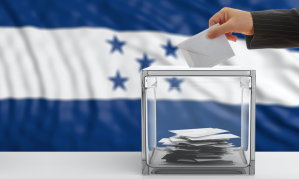This is a series of reports by the AALL FCIL-SIS Latin American Law Interest Group and Latino Caucus in a project monitoring COVID-19 legal responses in the Latin America and Caribbean region.
By Marcelo Rodriguez (En Español, En Français)
2021 will witness a few presidential elections throughout the entire region from Central America and the Caribbean to South America. They will be the following: Ecuador in February, Peru in April, Saint Lucia by September and Haiti, Nicaragua, Chile and Honduras all in November. Furthermore four territories will also elect their heads of government this year: Curaçao in March, Cayman Islands in May, Aruba in September and Turks & Caicos sometime in early 2021. The wide geographical extent of such important elections in the region contrast with a year 2020 marked with presidential elections taking place mostly in the Caribbean region, with the exception of Bolivia. These previous examples of elections will provide this year’s elections with a framework from which to face voters still enduring the ripple effects of an ever-expanding pandemic and its multiple restrictions and lockdowns.
In this brief report, I will mention the most salient challenges, expectations and issues related to the upcoming 2021 presidential elections in each of these countries. What are some of the political, economic, health and social dynamics influencing these political processes? How are the governments and different election agencies preparing to ensure voters’ trust and participation in the process while the pandemic is still ravaging the region? Are there any other significant changes or expectations to the political process given the new normal?
A word on territories
Despite not being called presidential elections, at least four territories in the Caribbean will conduct consequential elections this year, including voting for their respective heads of government. On March 19, 2021, the people of Curaçao will vote in their parliamentary elections. Preparations to register eligible voters and protocols for political candidates have already begun on the island following social distancing and other health measures. Neighboring Dutch island, Aruba will also conduct parliamentary elections this year in September 2021. Both islands have had to endure some of the most brutal and drastic ripple effects of COVID-19 due to their heavy reliance on international tourism. In November 2020, the central government in the Netherlands agreed to provide much needed help to both islands in exchange for a series of reforms as well as more direct supervision from The Hague. Despite some initial pushback, the islands were not in a position to bargain given the desperate situation they find themselves in. (See: Dutch Caribbean in our previous report).
Within the British Caribbean, Cayman Islands and Turks & Caicos will host general elections on May 26, 2021 and in early 2021 respectively. The Cayman Islands have been preparing for its upcoming elections with much anticipation. Due to COVID-19 related restrictions, the islands have rolled out its early preparation plans with “mobile voting” which includes polling eligible voters wherever they are and early voting. On the other hand, elections in Turks & Caicos were initially supposed to take place at the end of 2020. However, they have been postponed until the early months of 2021 due to concerns of COVID-19 and despite calls for more transparency from opposition leaders. Constitutionally, elections need to be held before March 31, 2021. (See: British Caribbean in our previous report).
7 February 2021: Ecuador
2021 in the region will begin in Ecuador on February 7. Despite initial doubts, the National Electoral Council (Consejo Nacional Electoral, CNE in Spanish) confirmed that the date for national elections will remain the same. The deeply unpopular President Lenín Moreno will not be running for office in a race with the highest number of presidential candidates in the country’s democratic history. Prior to the pandemic, social protests against the government’s austerity measures and its crackdown on protesters had already become thorny issues with prospective voters. As with all economies in the region, Ecuador looks at a bleak future with potentially catastrophic consequences. Despite its early lockdown measures, the country became the epicenter of one of the most significant outbreaks in the region. Misinformation and mistrust on the political process have also influenced the public discourse linked to the pandemic and the upcoming elections. Despite the fact that voting is obligatory in Ecuador, more than 60% of voters report not having any desire in participating.
11 April 2021: Peru
Among all the elections taking place this year in Latin America and the Caribbean, the 2021 presidential elections in Peru are arguably one of the most talked about both regionally and internationally. The current interim President of Peru, Francisco Sagasti is the third head of government the country has seen in just a few days. On November 9 and almost 3 years at the head of the country, Martín Vizcarra was impeached under article 113(2) of the country’s constitution, charged with “permanent moral incapacity” and removed from office. Immediately following Vizcarra’s removal from office, the then president of congress, Manuel Merino was appointed President of Peru the very next day on November 10. However, Merino remained in office only five days following a series of accusations of political coup against Vizcarra, international criticism and massive national protests which led to the killing of various people. Amidst one of the world’s deadliest outbreaks of COVID-19, Peru’s Congress voted in less than 24 hours to appoint Francisco Sagasti, a consensus candidate, as the new interim president until next presidential elections on April 11. Given its turbulent recent history, public distrust in the government as well as the country’s handling of the pandemic will surely impact voters’ participation despite the interim government’s announcement of strict health protocols.
September 2021: Saint Lucia
Constitutionally, the government of Saint Lucia is required to conduct general elections no later than September 2021. However, as of December 2020, no official date has been confirmed, despite opposition calls to host them this year. Political parties have begun their preparations, assigning candidates and designing campaigns in anticipation. Despite the relatively low cases of COVID-19 on the island, electoral authorities in Saint Lucia are on high alert and mindful of the need for special health and sanitary protocols to ensure the safety of all voters as well as the democratic process. Last year’s presidential elections in other Caribbean countries such as Guyana (March), St. Kitts and Nevis (June), Trinidad and Tobago (August) and St. Vincent and the Grenadines (December) to name a few have also influenced the electoral process, media coverage and public interest in Saint Lucia in numerous ways.
November 2021: Haiti
Current Haitian President Jovenel Moïse has been ruling the country by decree since January 2020, because the parliament is out of session. The terms of two-thirds of the Chamber of Deputies and Senate expired months before the pandemic hit the Caribbean nation in March. Despite international criticism and calls to form a transitional government, President Moïse has repeatedly expressed his intention to remain in power until February 2022 and hold at least three different elections during 2021: legislative, referendum on a new constitution and presidential. Opposition leaders have expressed their desire to hold elections as soon as possible and limit Moïse’s hold on power until February 2021. Social protests have marred the country as political uncertainties increase and COVID-19 destroys the last hopes of an economy already devastated.
7 November 2021: Nicaragua
Incumbent President Daniel Ortega is running in the upcoming presidential elections scheduled for November 7, 2021 to win his fourth consecutive term. Since the confirmation of election dates back in July 2020, the process has been marred by controversies due to President Ortega’s crackdown on political opponents and a complete denial of COVID-19. In December 2020, Nicaragua’s Parliament approved a new law that will ban candidates that allegedly support international sanctions against the country. The opposition cries a new tactic to suppress competition and silence their voices. The international community has expressed concern regarding the measures and protocols in place to ensure a free and equal participation for all voters without substantive reform to the current electoral system. The current government has notoriously refused to respond to the COVID-19 crisis in the country, and it has banned any organizations or individuals trying to address it. Civil society organizations, such as Observatorio Ciudadano, are risking their lives while trying to provide accurate COVID-19 information about the crisis in the country as well as raising awareness of health protocols among Nicaraguans.
21 November 2021: Chile
Only two months ago, Chileans voted on a national plebiscite to approve redacting a new constitution. The upcoming presidential elections in 2021 will be one of the many other electoral processes taking place in the country related to the next plebiscite steps as well as local elections. Such an active political year faces a ravaging pandemic and continuing social unrest. Despite the dire challenges, numerous political parties and candidates have already begun their respective campaigns throughout the country. The increasingly low approval rates of current President Sebastián Piñera and disputes on how to better help Chileans economically, have given the opposition a platform from which to call for earlier presidential elections. Piñera criticized such a project and called upon lawmakers to “respect the rules of the game.” The expectations and impact of this year’s elections in Chile will have far reaching consequences throughout the region.
28 November 2021: Honduras
In Honduras, the electoral year will kickstart with primaries on March 14, 2021, despite calls for much needed election reforms. After some speculation, current president Juan Orlando Hernández confirmed and reiterated that he will not seek a third mandate in these upcoming elections. Despite the 1982 constitution not allowing it, Hernández previously searched a second term in the 2017 presidential elections based on a 2015 Supreme Court decision. He won these last presidential elections under the promise of political and economic reforms. Multiple accusations and scandals of corruption rocked the government as well as social protests prior to the arrival of COVID-19 in the country on March 10, 2020. The economic and social consequences of the pandemic were immediately felt throughout the country and continue to this day. The most active hurricane season in recorded history brought Honduras two hurricanes in less than two weeks which exacerbated the impact of the multiple crises, especially food security, severe unemployment and obliteration of livelihoods in vulnerable communities.


